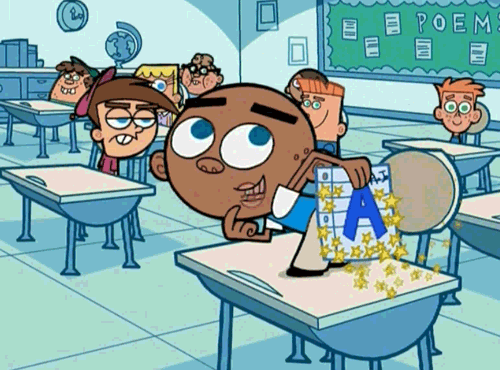
Boy Meets World
Perfectly balancing a class schedule isn’t intuitive. Consequently, some students may be thinking about adjusting their schedules after the first week of classes, when the reality of the semester sinks in.
Of course, there are a thousand reasons you could want to drop a class. One year, on the first day of class, a professor of mine made an offensive joke about a health issue. I dropped the class immediately and reported her behavior to the department. Another time, I read over the class syllabus and simply realized I was uninterested in the subject matter. Both times, I dropped the class before the deadline, so my transcript wasn’t negatively impacted.
You can drop a class for any number of reasons. It might be because of the amount of work, the class not fitting a requirement you need, or even the location of the classroom. In fact, you don’t even need to reveal your personal reason for dropping the class (but that doesn’t mean you should withdraw just because your crush isn’t in the class).
If you’re thinking about dropping a class, you’ll need to make a decision as soon as possible. Some colleges impose “drop dates,” which are deadlines for dropping a class. If you drop a class before the drop date, there are usually no consequences; the class disappears from your transcript and you don’t have to pay for it either. If you wait until after the drop date, though, you may get stuck paying tuition for those credits and the class may appear on your transcript as an incomplete.
Whether you’re a high school or college student, if you’re having doubts about a class, ask yourself some questions now so that you can talk to the registrar as soon as possible.

Fairly Odd Parents / Giphy
- Is this course necessary this semester?
- What will I do after I drop the course? Do I need to find another one?
- If I drop this course, do I have enough credits to maintain my financial aid package? (Note that to receive a full financial aid package, you must be enrolled full-time. If not, your financial aid will be adjusted based on the number of credits you are taking.)
- Does the course challenge me too much or not enough?
- Is this course interesting or useful?
- Will this prohibit me from graduating on time or fulfilling graduation requirements?
- Will this professor provide opportunities to raise my grade with easier assignments or extra credit?
- Have I dropped a lot of classes in the past after the drop date? If so, will colleges and potential employers notice it on my transcript and see this as a negative reflection on my ability to commit to classes and responsibilities?
- If I stick with the class, is it going to affect my life negatively?
Now, if you’re ready to kick that class to the curb, here’s what you do.
- Determine whether dropping is an option or not. To learn about your options and deadlines to drop a class, ask your counselor or look in a student guidebook from your school. Even if you can drop the course, you might not want to. For example, if this class is a prerequisite that you need, you probably want to find a way to manage the challenge of taking the class. So, while dropping the class may be an option, it may not always be the best option.
- If the deadline has not passed, ask the other important questions. Inquire whether you need to pick up a class to fit your full-time requirements or fulfill credits and graduate on time. Speak with the professor of the class you’re thinking of adding to see how far behind you are with any assignments that will affect your grade.
- What happens once the class is dropped? Well, for one, you don’t have to go to it anymore. If you have dropped it within the drop period, the class will not affect your GPA. Instead, if it shows up on your transcript at all, it might appear with a W (for “withdrawn”) in place of where the grade would have been. If you decide to take the class at a later date, though, you may wind up with an R indicating that you have retaken the class. The R is not nearly as bad as the F you may have received if you had continued with the class as it was originally scheduled, so pick your poison, as they say.
Dropping a class can be worrisome, but you can sooth your doubts by talking to the registrar and your academic advisor and knowing your school’s policies. Withdrawing from a course does not affect your grade point average, but it could have other consequences. Weigh your options, then take action. Enjoy your semester!
-
What Is Test Anxiety and How Do You Cope with It?
-
Las siete mejores aplicaciones para aprender inglés
-
What Type of Learner Are You?
-
Five Tips for Bettering Your Focus after a Vacation
-
What to Do When You Think Your Teacher Hates You
-
What You’ll Learn from Taking the SAT or ACT the First Time
-
What Happens When You Cheat or Plagiarize: A Guide for High Schoolers
-
Why Everyone Should Try a Free Online Class at Least Once
-
Tu lengua materna y cómo empezar a estudiar inglés
-
Eight Study Tips to Help You Master the SAT
-
Should You Take the ACT or the SAT?
-
Executive Functioning Skills: Attention and Working Memory

